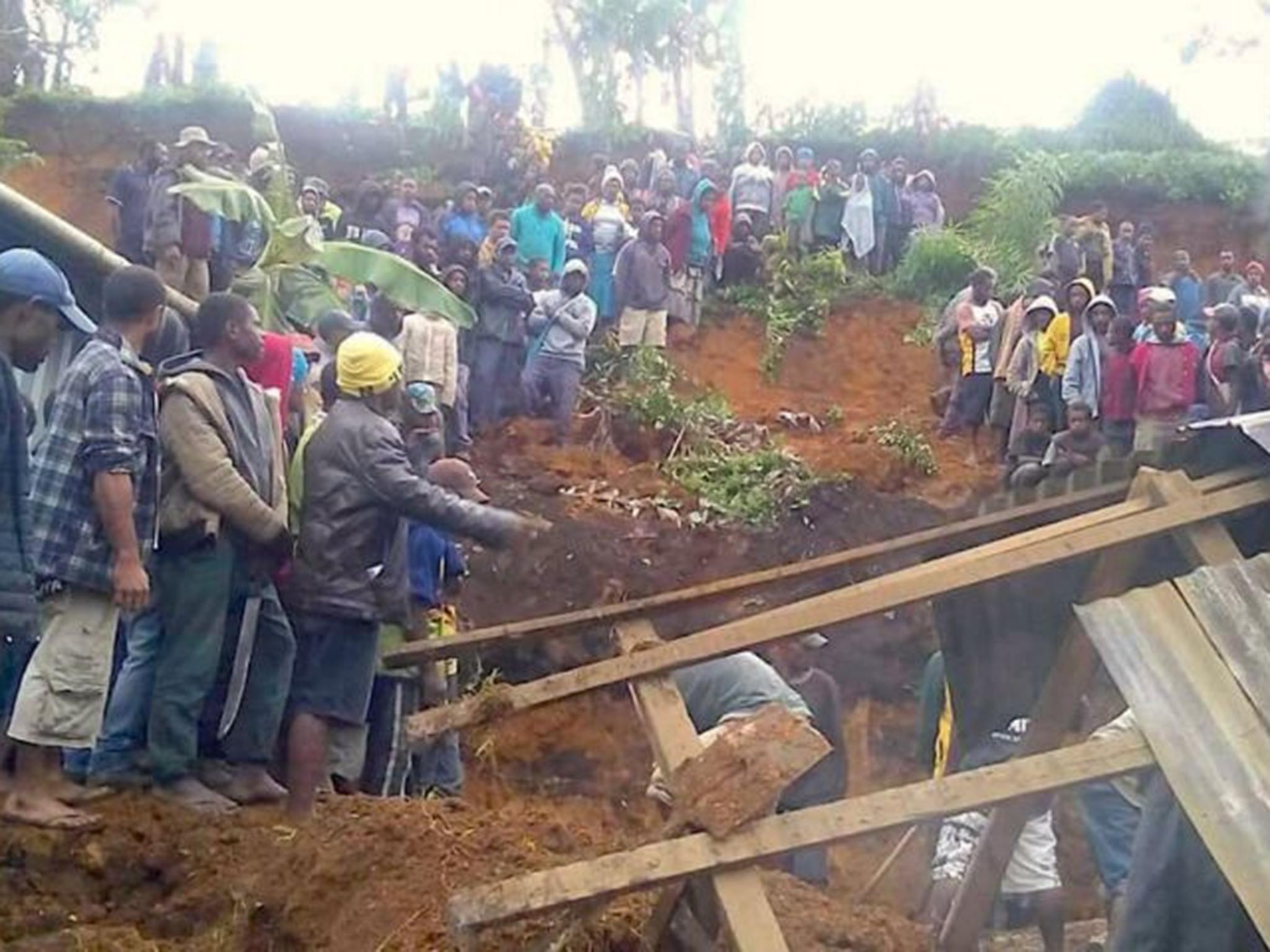Papua New Guinea earthquake: Island declares state of emergency after landslides kill 31 and bury whole towns
'People have started to dig out and to recover dead bodies still in the ground'

Your support helps us to tell the story
From reproductive rights to climate change to Big Tech, The Independent is on the ground when the story is developing. Whether it's investigating the financials of Elon Musk's pro-Trump PAC or producing our latest documentary, 'The A Word', which shines a light on the American women fighting for reproductive rights, we know how important it is to parse out the facts from the messaging.
At such a critical moment in US history, we need reporters on the ground. Your donation allows us to keep sending journalists to speak to both sides of the story.
The Independent is trusted by Americans across the entire political spectrum. And unlike many other quality news outlets, we choose not to lock Americans out of our reporting and analysis with paywalls. We believe quality journalism should be available to everyone, paid for by those who can afford it.
Your support makes all the difference.Papua New Guinea has declared a state of emergency across its remote and rugged highlands, after a deadly earthquake flattened provincial towns and buried hamlets under landslides, killing at least 31 people.
Stymied by forbidding terrain and weather, as well as damaged roads and runways, aid has not yet arrived in several large towns where it’s most needed, local officials said.
“The only means of rescue is through helicopters and they are hardly coming,” Hela province’s administrator, William Bando, said from the city of Tari, around 25 miles from the epicentre.
“Our people live in scattered hamlets and people are dying slowly... A lot of people are asking for tents, water and medical supplies.”
The emergency declaration, made by Papua New Guinea prime minister Peter O’Neill cleared the way for 450 million kina (£98 million) in government aid to flow, as well as help from the military.
“This is an unprecedented disaster and the appropriate response is underway by the national government,” Mr O’Neill said in a statement, which also announced a restoration authority would direct recovery efforts for the next four years.
At least 13 people died when landslides covered remote hamlets close to where the quake struck, some 350 miles north-west of the capital, Port Moresby, an official who put the total death toll at 31.
While the region has no major urban centres, around 670,000 people live within 62 miles of the epicentre according to Red Cross.
Most of the other confirmed fatalities were in or around Tari township and provincial capital of Mendi, where at least 14 people died and aftershocks continue to frighten residents.
“People have started to dig out and to recover dead bodies still in the ground,” Mendi policeman Naring Bongi said from his station, where desktop computers were smashed when the quake hit. “There is no help except for those who are here going around and collecting information on casualties and such things,” he said.
He added: “Our state of mind is not great. We are confused as to what is to be done to us in this case ... the earth is still moving – it really frightens us, so we don’t know whatever to do, all the services in Mendi have closed.”
The International Federation of Red Cross and Red Crescent Societies said it released $221,000 (£160,000) in funds to help relief efforts and would send first aid, water, mosquito nets and shelters, to the region.
Australia has also promised $200,000 (£145,000) in aid, sent a C-130 military plane to help with aerial surveys and a spokeswoman at the foreign ministry said more help was on standby, should PNG request it.
Miners and oil and gas companies were also assessing damage to their infrastructure, and an industry source said ExxonMobil Corp has declared force majeure on exports from its Papua New Guinea liquefied natural gas (LNG) project, which has been shut since the quake hit.
The company declined to comment on the declaration, but said it would “take time” for a full survey of damage, given the quake ruined roads and other infrastructure.
Earthquakes are common in Papua New Guinea, which sits on the Pacific Ocean’s Ring of Fire, a hotspot for seismic activity due to friction between tectonic plates.
Reuters
Join our commenting forum
Join thought-provoking conversations, follow other Independent readers and see their replies
Comments